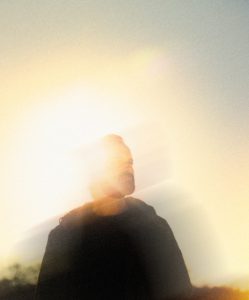 The pan-Canadian committee of members of our film industry chose Les Oiseaux ivres, a feature film by director Ivan Grbovic, as its representative in the Best Foreign Film Oscar race. On the very day we meet with Philippe Brault, who scored the movie, the news broke that the film was no longer in the race for a nomination. That didn’t deter the composer: “My music has travelled along with the film,” was his first reaction. It’s nearly impossible to determine what that means, and the impact it could have [on my career], but just knowing that there are a lot of interesting people who will see the movie means a lot.”
The pan-Canadian committee of members of our film industry chose Les Oiseaux ivres, a feature film by director Ivan Grbovic, as its representative in the Best Foreign Film Oscar race. On the very day we meet with Philippe Brault, who scored the movie, the news broke that the film was no longer in the race for a nomination. That didn’t deter the composer: “My music has travelled along with the film,” was his first reaction. It’s nearly impossible to determine what that means, and the impact it could have [on my career], but just knowing that there are a lot of interesting people who will see the movie means a lot.”
Recognized as one of Québec’s best record producers (Émile Bilodeau, Koriass, Patrice Michaud, Laurence Nerbonne), Brault – Pierre Lapointe’s longtime collaborator – was successful right from the start as a film composer: Sébastien Pilote’s La Disparition des lucioles (2018) earned him the Iris Award for Best Original Score in 2019.
“I’d done a bit of screen composing for TV before, but I mostly worked on albums and music for stage plays,” he says. “I’ve always gone with the flow, career-wise, I don’t over-think what’s next. I did the music for La Disparition des lucioles and it went super-well, I had a blast working on that. I remember telling my girlfriend that I’d like to do more film music.”
Thus, over the past two years, he’s composed four scores, including the aforementioned Oiseaux ivres, as well as the music for the popular Maria Chapdelaine, also directed by Sébastien Pilote. The results couldn’t be more different: Maria Chapdelaine is characterized by its big string arrangements around clearly defined themes and its references to folkloric music – foot-tapping and fiddles – whereas Les Oiseaux ivres is undeniably more diffuse and mysterious, mirroring the movie’s atmosphere, which critics have described as dream-like and impressionistic.
“True, the movie has that vibe because of its long, poetic sequences that make you feel like you’re uncoupling from reality,” says Brault. “But the movie also features characters that are somewhat rudderless, even though they think they aren’t, so I wanted to create music that was never totally anchored. You feel that in the music, as opposed to Maria Chapdelaine, where the music is firmly rooted in the land. Les Oiseaux makes you grasp for your bearings, and the music needed to underscore that.”
String arrangements are also the main colour of the music of Les Oiseaux ivres, but their effect is quite different, says Brault, “and windwood instruments also play a big role. Strings are there to enhance atmospheres, while windwoods add texture. One of the things I enjoyed while working on Les Oiseaux ivres that I couldn’t do for a more classic film like Maria Chapdelaine is use synthesizers. They lurk behind the strings, but they do contribute to the atmosphere, notable through pulses. Even the violins were tweaked in the studio, allowing me to push more modern ideas.”
The composer says he found inspiration for his musical ambience in the work of production designer André-Line Beauparlant and director of photography Sara Mishara. “The entire movie was shot on film, and only during traditional movie hours – at sunrise and at the end of the day – in order to get the best lighting,” says Brault, who worked closely with director Ivan Grbovic (who lives four blocks from him), making it easier to communicate during the pandemic. “That allowed for truly beautiful, epic, wide shots, with this light flooding amazing landscapes; the photo direction is very special. Some of the camera framings create space for the music; it sounds abstract to say it like this, but I saw these images as paintings by impressionist masters. It was incredibly inspiring to write music that was married to those images!”
At least two other new film scores by Brault are ready while the films await their release, and the musician confirmed that he’s working on new film projects – which reminds him that one of the qualities required to get into film music is patience.
“What I’ve come to understand with time is that in the movie business, you only measure the results of your work two to three years later,’ he says. “The process of making a film is complicated: a director picks up on your work, figures out if it fits the type of film he’s developing, and from there it can take another two or three years before he contacts you. Making a movie is a long-haul project, I find, as opposed to recording an album. If a project does well, I usually get a ton of collaboration requests about a year later. The process is a lot shorter, whereas filmmakers may pick you, but they still need time to develop their project. It is totally different universe.”